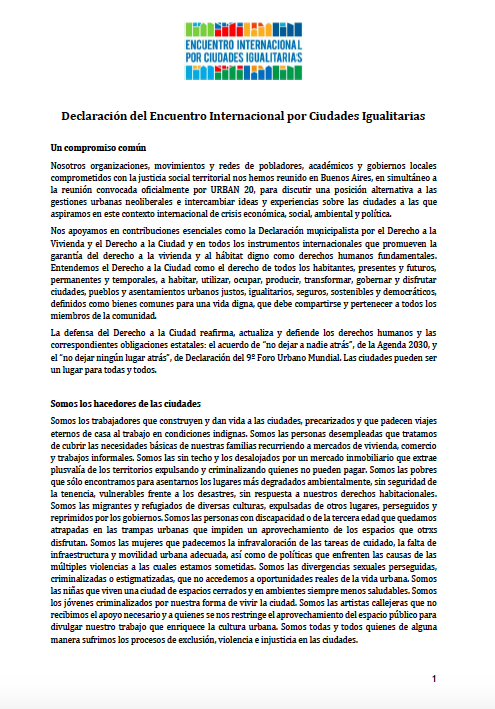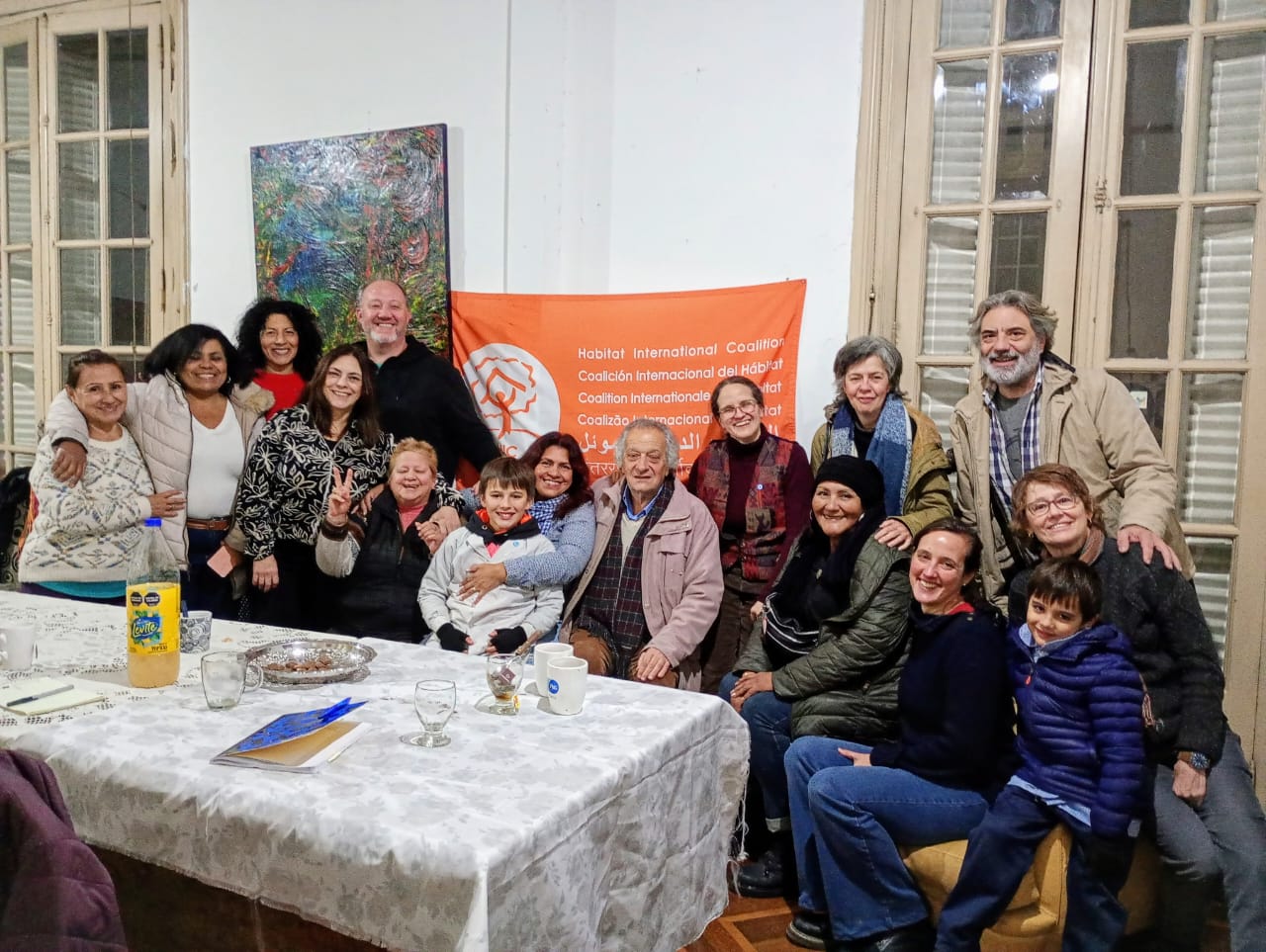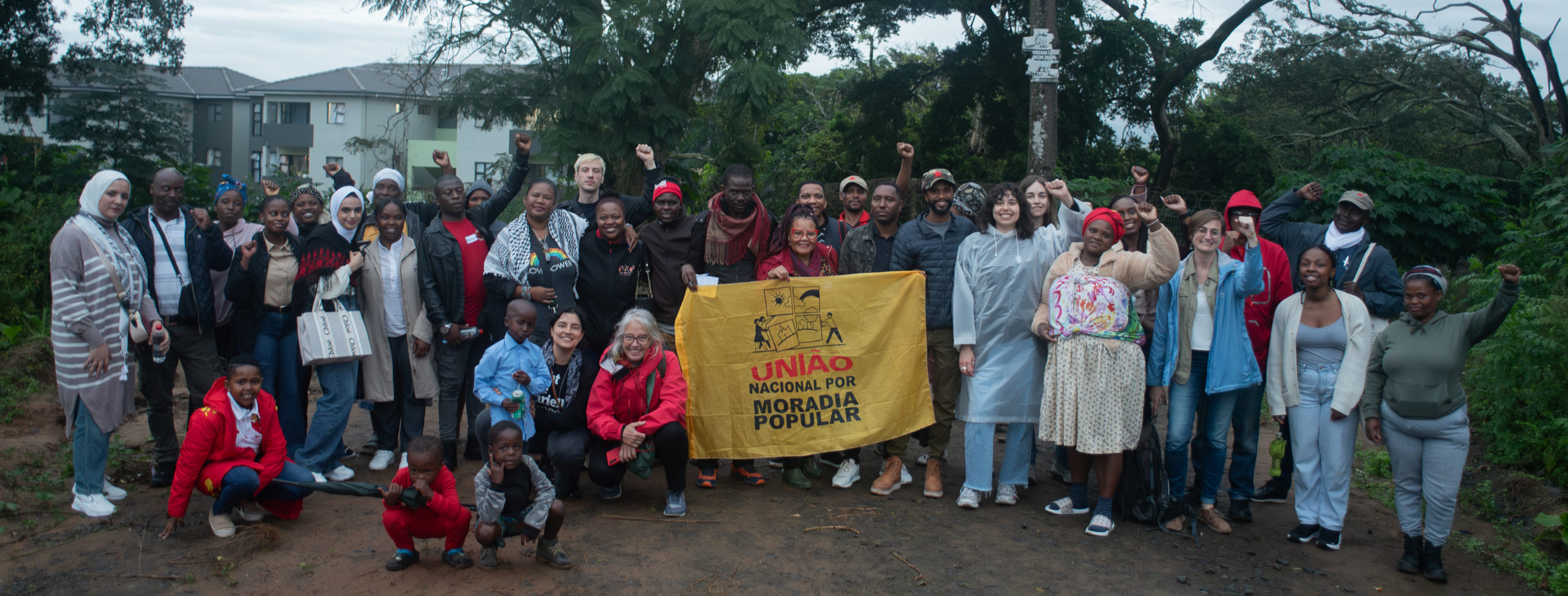Specialists in the field of economic, social and cultural rights (ESCR) have observed that the art and science of governing with a human rights framework is an exercise in reconciling a series of “dilemmas,” balancing powers and responsibilities so as to raise the general level of civilisation and, ultimately, enhance the external and internal legitimacy of the State itself. In this sense, too, we would like to admit to a dilemma that we also confront as ESCR defenders:
For many of us, defending civil liberties from erosion, indigenous peoples from extinction, minorities from discrimination, health conditions from decline, intellectual freedom from suppression, public security from the misuse of force and the poor from further exploitation have required a confrontation with authority–State authority. While States are, as necessary, the principal duty holders for upholding human rights, States and State authority just as likely can manifest as the instrument of narrow interests, exclusionary ideologies, repression, confiscation of precarious livelihoods and, in turn, effectively the criminalization of diversity and poverty status. In the relationship between human rights defenders and States, a stereotype has emerged of civil groups pitted against State authority. Inasmuch as this paradigm is sometimes necessary to check the abuse of power and advance human rights, it is also partially true. Ironically, however, the increasingly evident negative effect of globalisation for many now finds NGOs themselves confronting the dilemma of now calling for a return of State authority.
Many governments with a traditional aversion to many human rights obligations as such have perceived human rights as a burden that complicates the exercise of State power and generates a flurry of impossible demands from all sides. The public administration nightmare of impatient hoards storming the ministry gates, demanding jobs and houses by right, has impeded the ratification of ESCR obligations. Some State authorities have viewed human rights simplistically as a rhetorical bludgeon wielded by competing political elites and other opponents domestically and, worse, by the external forces seeking geostrategic advantage over target States’ authorities. Ironically, again, the most consistently preachy States selectively using human rights as a foreign policy weapon often are the ones most characteristically reluctant to join the Covenants and Conventions of the interstate system and/or those conspicuously averse to the Optional Protocol of the ICESCR.
At the risk of oversimplifying a complex dynamic in this summary intervention, we submit that, in the triangular contest of the human rights community v. State authority v. external economic/political forces–again ironically–the ESCR NGOs and States can find a convergence of mutuality and reciprocity.
Never before has it been so clear that ESCR form essential tools of statecraft not only for the establishment of domestic justice to advance civilisation, but also to sustain external and internal legitimacy and State authority as such. While ESCR NGOs call on States to implement their ESCR obligations, it is by States adapting this same language and actually asserting their prior covenanted obligations that they make a compelling legal case against the forces that call on States to abandon their regulatory authority to manage markets, or to meet self-sufficiency requirements in agriculture and other public goods. A country (of which there is more than one example) pursuing a five-year plan for self-sufficiency in pharmaceuticals will surely fail under numerous WTO strictures–from TRIPS to GATS–at a time when, God forbid, it may face a national health crisis. The globalised rush to privatisation, for example, is guided not by evidence of universal prosperity, but along new, fashionable assumptions that State provision and the authority to determine local requirements are axiomatically “out,” and the dominance of nonstate actors is “in.”
In the extreme case of Palestine, both the World Bank and the Special Rapporteur on housing have reported how external control of building-materials distribution has further crippled a putatively free market from meeting acute local needs. Although the other incalculably grave breaches dwarf this consequent violation of the right to housing, it has heaped additional hardships on the people, including hundreds of thousands of Euros in losses to local companies. For those States who wish to avoid the Palestinianisation of their national authority, upholding prior obligations with corresponding authority to realise headlong progress in citizens’ ESCR forms a ready shield with which to defend responsible States from the blows of globalisation’s double-edged sword.
Delegates here assembled should understand this principle by now; however, most governments lack the interministerial coordination where it is needed to institutionalise practical understanding about self-preservation options in the globalisation era by implementing ESCR treaty obligations. There are too many examples of State representations in the political, implementing and regulatory bodies of the inter-State system following rhetorical waves, completely unawares of prior State obligations. If, alternatively, they asserted these obligations, they could legally protect their authority and their citizens from looming ESCR violations exacerbated not by fellow State actors, but by externals. However, the legal bodies of the UN treaty system consistently remind States that they remain the covenanted human rights duty holder.
The arguments are too plentiful to catalogue here, and they are growing by multiple example. What we NGOs can ask of governments–especially developing-State governments–as partners is to resolve to coordinate better within and among themselves on the subject of prior treaty obligations. This is particularly important for ministries of foreign affairs, justice, finance, social affairs and international cooperation.
By the same token, many of the NGOs and NGO networks present are in the happy position of collecting and diffusing solutions applying the ESCR framework, while being necessarily mindful of present and potential violations. Surely enumerating the violations is the easier half of human rights work. However, from our comparative perspective, we are able to share solutions in cooperation with the case-based, local NGOs working creatively in your own countries. Specifically, Habitat International Coalition’s approach toward ESCR solutions is exemplified in its Housing Rights Monitoring “Tool Kit,” which it is developing and diffusing consistent with the Special Rapporteur of housing’s call for more systematic methods that both States and civil society can implement. We look forward to progress in ESCR by supporting strategies, including government initiatives, to resolve the most intractable contradictions. Perhaps most classic among them are historical injustices arising from inequalities in the implementation of women’s economic rights, the most fundamental of which include her rights to housing and land. We are also aware that, in many States, some laws and government bodies are more progressive than entrenched social practice, and judicious GO/NGO cooperation, therefore, can be the smarter option.
Thus, HIC urges States to resolve here to improve intergovernmental–but especially intragovernmental–coordination to assert their ESCR obligations, the implementation of which is threatened by global social and economic policies that seek to undermine the State’s authority.




